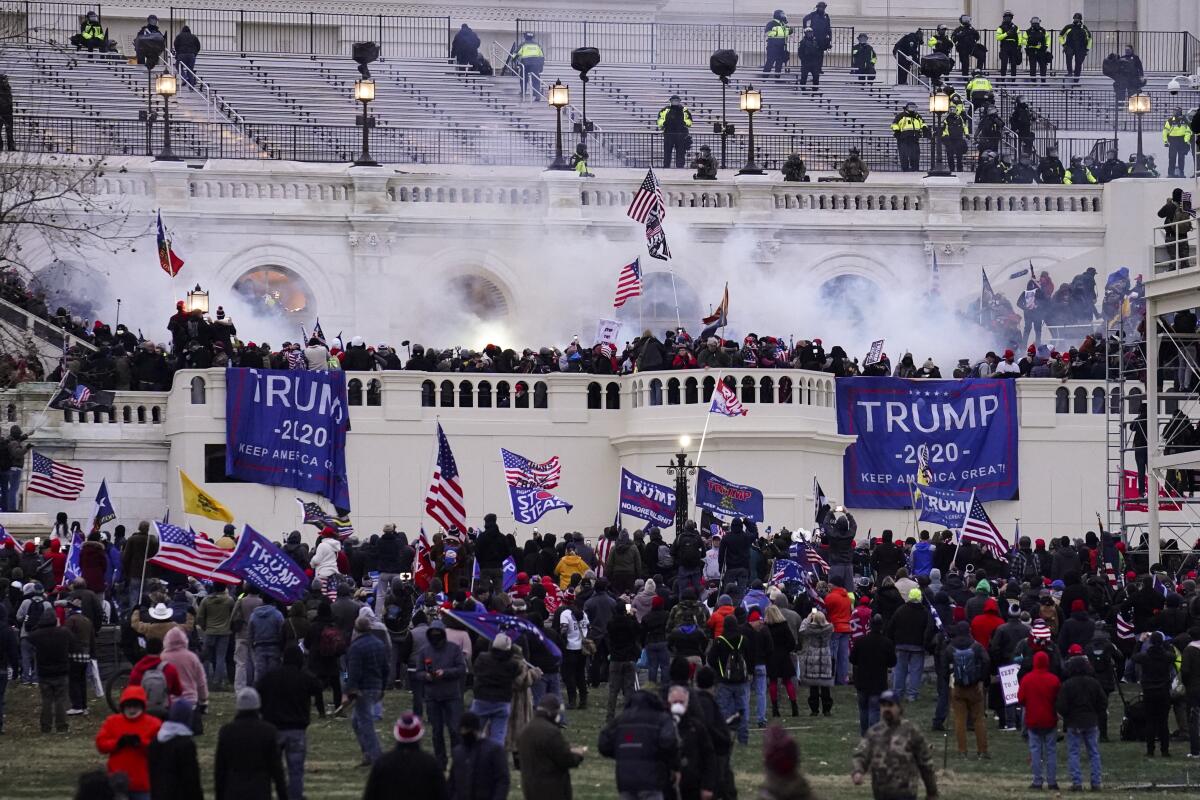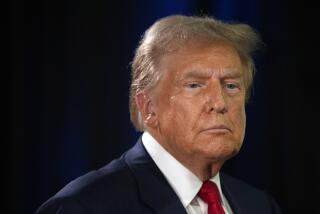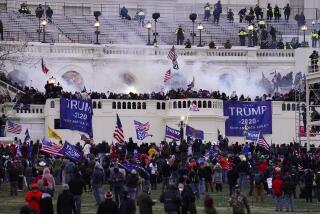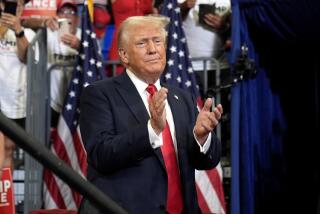Supreme Court throws out obstruction charges lodged against hundreds of Jan. 6 rioters

WASHINGTON — The Supreme Court on Friday rejected the most severe charges lodged against more than 300 of the violent insurrectionists who broke into the U.S. Capitol three years ago.
In a 6-3 decision, the court’s conservative majority said the rioters may not be prosecuted under a financial recordkeeping law that criminalized destroying evidence and obstructing an official proceeding.
But the vote was not entirely along the usual ideological lines. Justice Ketanji Brown Jackson agreed with the majority to limit the use of the obstruction law while Justice Amy Coney Barrett dissented.
While Friday’s ruling wipes out the felony obstruction charge against some of the insurrectionists, it does not free them from all charges.
The court’s conservatives said prosecutors overstepped their authority when they relied on part of the Sarbanes-Oxley Act, which arose from a corporate accounting scandal and made it a crime to conceal or destroy documents or other crucial evidence.
Justice Department prosecutors said that since the law also refers to obstructing an “official proceeding,” it could be read broadly to punish those who stormed the Capitol to obstruct Congress when it met in joint session on Jan. 6, 2021, to confirm President Biden’s victory.
A Supreme Court ruling will make it harder to enforce new federal agency rules on the environment, worker rights and healthcare.
Chief Justice John G. Roberts Jr. said criminal laws should be read narrowly. “Rather than transforming this evidence-focused statute into a one-size-fits-all solution to obstruction of justice,” he said, the court read it as a law forbidding the destroying of documents. He said the government’s “novel interpretation would criminalize a broad swath of prosaic conduct, exposing activists and lobbyists alike to decades in prison.” If that view were adopted, he said, “a peaceful protester could conceivably be charged” with obstructing a proceeding and face 20 years in prison.
Jackson agreed. “There is no indication whatsoever that Congress intended to create a sweeping, all-purpose obstruction statute,” she said.
In the dissent, joined by Justices Sonia Sotomayor and Elena Kagan, Barrett said the defendant in the case, a Pennsylvania police officer, did just what the law prohibits.
“Joseph Fischer allegedly participated in a riot at the Capitol that forced the delay of Congress’s joint session on January 6th,” Barrett wrote. “Blocking an official proceeding from moving forward surely qualifies as obstructing or impeding the proceeding by means other than document destruction.”
Friday’s ruling may also undercut the indictment of former President Trump for his role in the Jan. 6 mob attack. Two of the four charges lodged against him are based on the antiobstruction provision. Special counsel Jack Smith said these charges should remain valid because Trump and his allies conspired to send a false slate of electors to Congress.
The Supreme Court has sided with Trump and his supporters on three fronts this year.
In February, it temporarily blocked prosecutors from trying the former president on charges that he conspired to overturn his defeat in the 2020 election. The justices agreed to rule on his claim of immunity, which is still pending.
In March, the court ruled that state judges may not remove Trump from the ballot for “engaging in insurrection” in violation of the 14th Amendment.
Friday’s ruling throws out the felony charges against many of Trump’s supporters.
More than 1,200 of the rioters were arrested in connection with their actions on Jan. 6. Most were charged with assaulting police officers who were on duty or with disorderly and disruptive conduct. Some were also charged with carrying dangerous or deadly weapons.
California cities are looking to the Supreme Court to win more authority to restrict homeless encampments.
The FBI looked into the backgrounds and motives of those who came to the Capitol. Based on those investigations, about 330 of the rioters were also charged with seeking to obstruct an official proceeding.
Fischer, the police officer in the case, encouraged rioters to “charge” and “hold the line,” and had a physical encounter with at least one law enforcement officer on Jan. 6, prosecutors said.
Prior to that day, he had sent text messages stating: “If Trump don’t get in we better get to war”; “Take democratic [C]ongress to the gallows”, “I might need you to post my bail. ... It might get violent. ... They should storm the capital and drag all the democrates into the street and have a mob trial.”
When Fischer was arrested, he was charged with six counts of assault and disruption as well as a seventh charge of obstruction, a felony charge that could send him to prison for several years.
A federal judge rejected the obstruction charge in his case, but the U.S. Court of Appeals restored it in a 2-1 decision. The Supreme Court agreed to hear his appeal in Fischer vs. U.S.
The Sarbanes-Oxley law was adopted by Congress in 2002 after the collapse of energy firm Enron in an accounting scandal that also took down the Arthur Andersen accounting firm.
Congress wanted to make clear that shredding documents could be prosecuted as a crime.
The law said it is a crime if someone “corruptly alters, destroys, mutilates, or conceals a record, document, or other object, or attempts to do so, with the intent to impair the object’s integrity or availability for use in an official proceeding; or otherwise obstructs, influences, or impedes any official proceeding, or attempts to do so.”
In Fischer’s case, U.S. Solicitor Gen. Elizabeth Prelogar had argued the prosecutions relied on a “straightforward application” of the law as written.
“A violent mob stormed the United States Capitol and disrupted the peaceful transition of power,” she said. “In plain English, the fundamental wrong committed by many of the rioters, including [Fischer], was a deliberate attempt to stop the joint session of Congress from certifying the results of the election. That is, they obstructed Congress’s work in that official proceeding.”
More to Read
Sign up for Essential California
The most important California stories and recommendations in your inbox every morning.
You may occasionally receive promotional content from the Los Angeles Times.













